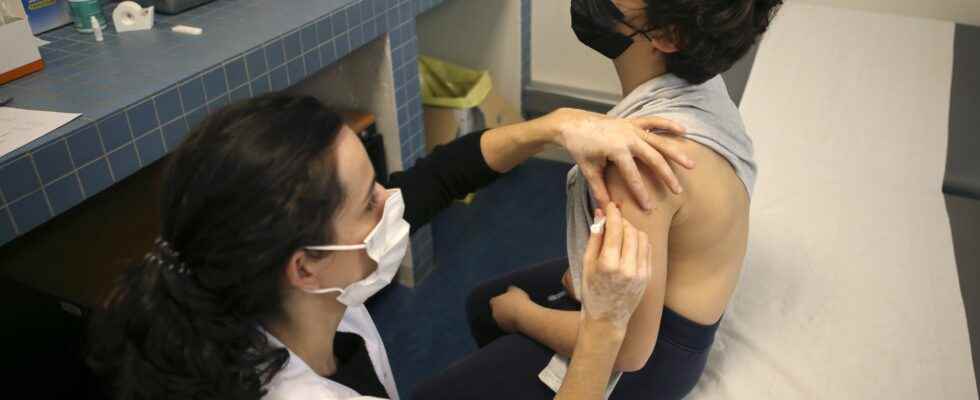After a brief lull at the start of the year, the flu epidemic has rebounded for two weeks in France. According to the latest epidemiological bulletin from Public Health France, published Wednesday, February 8, this rebound concerns in mainland “all age groups”, in town and in hospitals. Overseas, it continues in Guyana and the West Indies.
Only Normandy and Hauts-de-France appear in the “post-epidemic” phase, during which the end of the epidemic is possible in the short term. Brittany is, for example, in the midst of the “epidemic” phase after having started to emerge from it in the previous weeks. The epidemic was revived by the expansion of a new strain, called type B, even if the first, type A, remains present. The type B virus “can quite reinfect people who have already had type A flu”, infectious disease specialist Benjamin Davido explained to AFP last week.
This winter, the flu contributed to an unusual “triple epidemic” situation, with several waves of Covid as well as a particularly intense outbreak of bronchiolitis in babies. On the latter level, however, the situation continues to improve.
Massive vaccination campaign for children from the end of 2023
This Thursday, the French health authorities thus recommended that all children over the age of two be vaccinated against seasonal flu free of charge, highlighting the collective interest of such a measure, without making it compulsory. The opinion of the High Authority for Health (HAS) is theoretically only advisory, but the Ministry of Health tends to systematically follow its positions. This therefore paves the way for a massive childhood vaccination campaign from the end of 2023.
The HAS thus recommends “that vaccination against seasonal influenza be integrated into the vaccination schedule to be offered each year to children without comorbidities aged 2 to 17 years old, without making it compulsory”, she announced in a press release.
Until now, annual vaccination against influenza was mainly recommended for older people, that is to say everyone over 65 years old. However, it is also recommended for people at risk, such as asthmatics or patients with certain heart diseases. The opinion of the HAS therefore marks a change of footing of the French authorities, after years of debate on the individual and collective interest of mass vaccinating children against the flu.
Several countries, such as the United Kingdom and Spain, have already made this choice, in the idea that children constitute an important breeding ground for the transmission of the virus, in particular among older relatives. For the past two years, these debates have also found a particular resonance with the question, quite close, of anti-Covid vaccination. This was eventually extended to most children, not only in France but in other countries such as the United States.
AstraZeneca nasal spray
Opponents of this measure question the individual interest for children to be vaccinated against influenza, in view of the reduced risk of complications in their age group. After reviewing several recent large-scale studies, including “reviews” that compile pre-existing work, HAS concluded that existing vaccines were effective and well tolerated in children over two years of age. She therefore judges that there is an individual interest in vaccinating most minors, stressing that they have constituted a significant part of recent hospitalizations.
Finally, one point particularly holds the attention of health authorities: that this vaccination is poorly accepted by parents. This concern is part of a context where the Covid pandemic has made certain vaccine-skeptical discourses more visible. The HAS therefore does not recommend the vaccine for children under two years of age. Not only does she judge that the data is lacking on the effectiveness for these toddlers, but she also recognizes that such a measure “raises (would) raise questions of acceptability”.
As such, if the authority recommends all available flu vaccines, it advises instead to use a vaccine by nasal spray, developed by the AstraZeneca laboratory and currently not very present in vaccination campaigns. Here again, rather than better efficiency, it is a question of favoring a less tense gesture than an injection. “This simpler mode of administration (spray in the nose) should indeed be better accepted by children and their parents”, judges the HAS.
